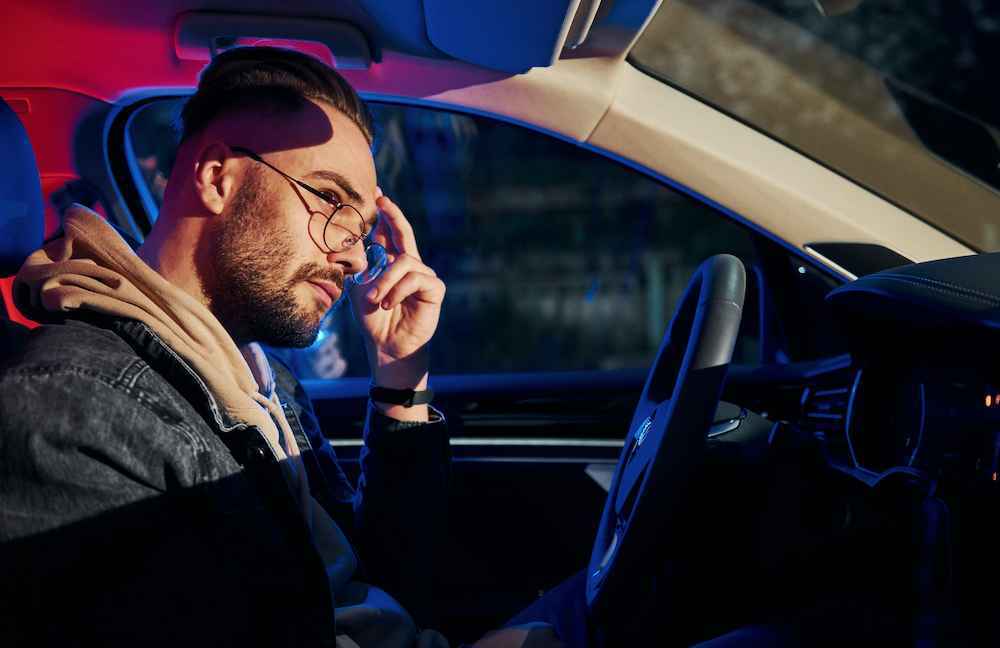DWI Traffic Stop: What Are My Rights?

A DWI traffic stop is no laughing matter. Truly, no one enjoys being pulled over. Those flashing lights in the rearview mirror are enough to send someone into a panic. After a couple of drinks, this is especially true.
Texas takes driving while intoxicated (DWI) charges seriously. That means your future hinges on what’s about to happen. For law enforcement officers, pulling people over is a standard activity. However, this might be your first time seeing those flashing lights meant specifically for you.
In certain cases, the officer uses this as leverage against you to throw you off and get you to act against your best interests. Moreover, when they suspect drunk driving, they try to have you admit to it.
Regardless of the circumstances, though, you have rights. No matter how much pressure an officer applies in a DWI traffic stop, it’s essential to remember this. When you stay calm and understand your rights, you have a better chance of navigating these interactions smoothly.
When Houston Police Department violates these rights, the Martinez Law Firm is here for you.
Lawful and Unlawful Stops
First, it’s crucial to understand when police have the right to pull you over. Under the law, officers have no right to stop someone and detain them on a whim. In order to initiate any traffic stop, the law requires the officer to have reasonable suspicion that you violated a law or statute.
Additionally, when they want to search your vehicle without a warrant or arrest you for a DWI, they have to have probable cause.
Reasonable Suspicion
“Reasonable suspicion” is a legal standard that police officers must meet to conduct a DWI traffic stop or pull over a suspected drunk driver. Moreover, it is essential for this suspicion to be rooted in facts, not simply their gut feeling.
When an officer has reasonable suspicion that you committed a traffic violation or are driving drunk, they can legally pull you over and detain you for an investigation.
Still, reasonable suspicion is a lower standard relative to probable cause. As such, it’s not enough for an arrest.
Probable Cause
“Probable cause” refers to a much higher legal standard. This is suspicion with a foundation of facts. Moreover, there are enough facts for a reasonable person to believe it as true. If an officer wants to arrest you for a DWI, it requires probable cause that you were driving while intoxicated.
When you work with our skilled DWI lawyer, we review the facts of your arrest to determine whether you experienced an unlawful stop. When the traffic stop is illegal, we work to collect evidence to exclude from your trial.
Depending on the details of your case, this includes physical evidence as well as chemical test results.
Your Right to Remain Silent – With Exceptions
Anyone who watches police shows on television is probably familiar with the phrase, “You have the right to remain silent.” Under the 5th Amendment, you have protection from self-incrimination.
This amendment prevents officers from forcing you to incriminate yourself through the threat of arrest. At a DWI traffic stop, you have no obligation to answer many questions from law enforcement.
However, there are exceptions to this. For example, the most common exception is “failure to identify,” where an officer requests your name, driver’s license, and registration. Under Texas law, failure to provide this information is a criminal offense.
Failure to Identify
In some instances, an officer charges people with Failure to Identify when they refuse to provide certain information. Alternatively, they might provide false information. Under the Texas Penal Code, there are two ways officers charge people with this.
- When an officer arrests you, it is illegal to refuse to provide certain information: name, residence, date of birth, etc.
- Under arrest or detainment or as a witness to a crime, it is illegal to provide false information about yourself.
Under Texas law, failure to identify is a misdemeanor. The maximum penalty for this is a year in jail and fines up to $4,000. Moreover, providing false information results in far worse penalties.
Miranda Rights
You have protection under the 5th Amendment at all times. However, only certain situations require law enforcement to inform you of your rights. When an officer places you into custody, the law requires that they read your Miranda Rights.
However, at a DWI traffic stop or any other time they pull you over, there’s no requirement to read you these rights. Still, once they arrest you, they have no right to question you without reading off this warning.
When you face a DWI arrest in Houston, it is wise to decline to speak with officers until you have a chance to consult a lawyer.
The Right to Refuse Field Sobriety Tests and Chemical Tests
At a DWI traffic stop or investigation, the police may ask you to perform a field sobriety test or to submit a breath, blood, or urine sample to test your alcohol levels. However, this is a request and nothing more.
Without a warrant, the officer has no option to force you to submit to any chemical test. Unfortunately, refusing this test has its own consequences.
Refusing a Test
When someone refuses to submit to testing, it makes sense at the time. However, it’s important to understand the consequences. This refusal results in an automatic suspension of your driver’s license for 180 days.
Moreover, if you have a previous DWI conviction or refusal, it extends to two years. Additionally, it’s essential to remember that the prosecution tends to point to refusal as evidence of guilt.
Warrants
When a police officer pulls you over and has a warrant to take a blood sample, it no longer requires your permission. In Texas, there is a “mandatory blood draw statute,” which requires officers to acquire chemical samples in certain cases.
Typically, this is limited to accidents that involve severe injuries or death to another individual. Additionally, this statute applies to people with previous felony DWI conviction or a conviction for intoxication assault or manslaughter.
Vehicle Searches at DWI Traffic Stops
Under the 5th Amendment, you also have protection from unreasonable search and seizure from the government. When an officer lacks the probable cause to believe there is evidence in your vehicle, they require a warrant to search it.
It’s important to remember, though, that officers have the option to seize evidence in plain view through your windows. When officers seize evidence during a DWI traffic stop, our lawyers guide you through whether or not they violated your rights.
Unlawful DWI Traffic Stop? Contact Our Firm Today
When you face charges for driving while intoxicated, you need an experienced defense attorney to act as your advocate. Herman Martinez has extensive experience as a criminal lawyer in Houston. At our firm, we know what it takes to pursue the best possible outcome in your case.
Our legal team is ready to help you build a solid defense for your case and protect your future. Whether your DWI traffic stop was lawful or unlawful, we fight for your best interests.
To discuss the merits of your case, schedule a free consultation with our Houston lawyers today.





